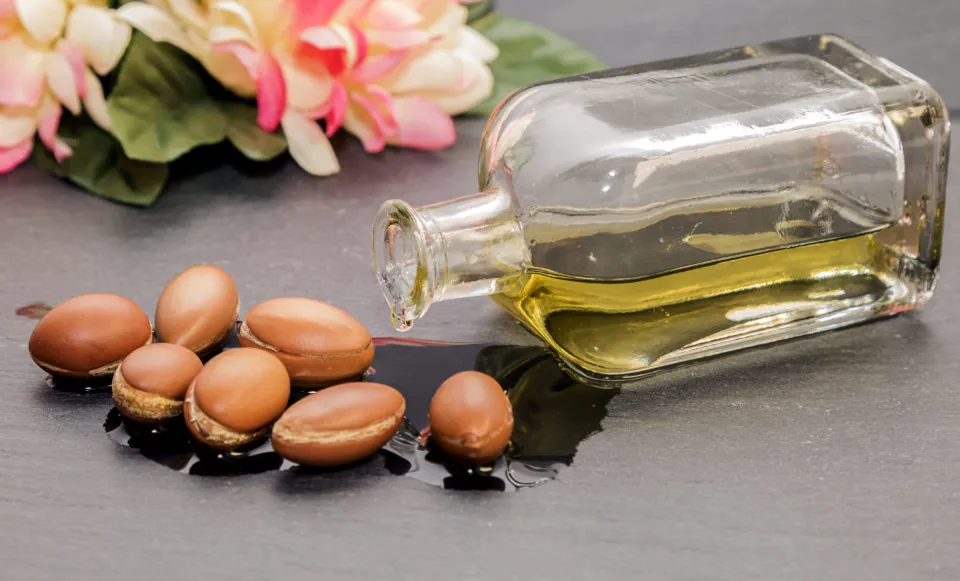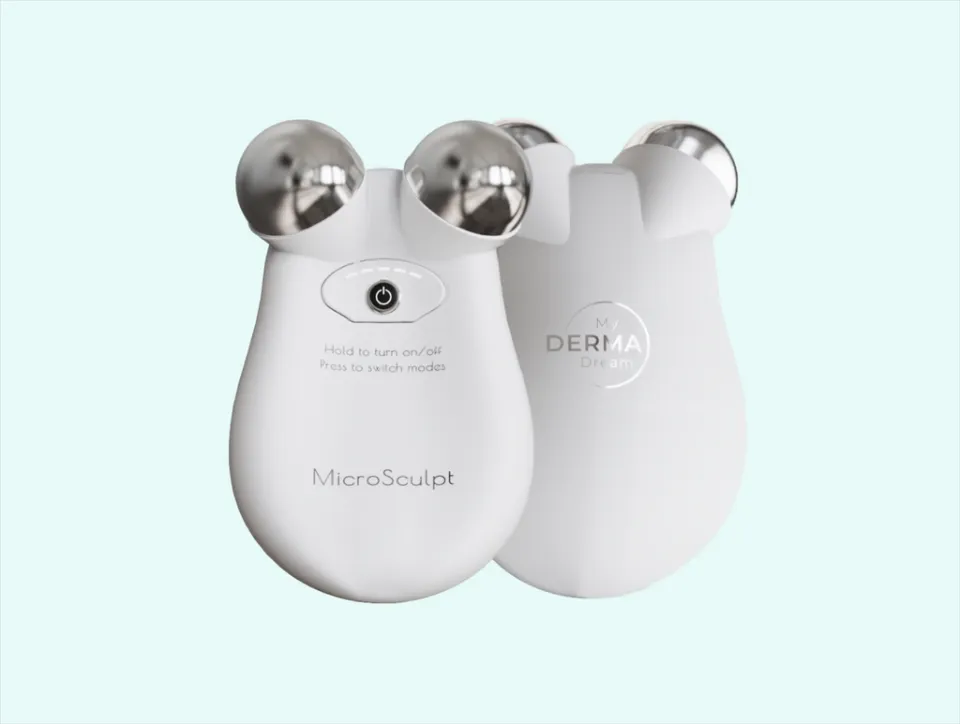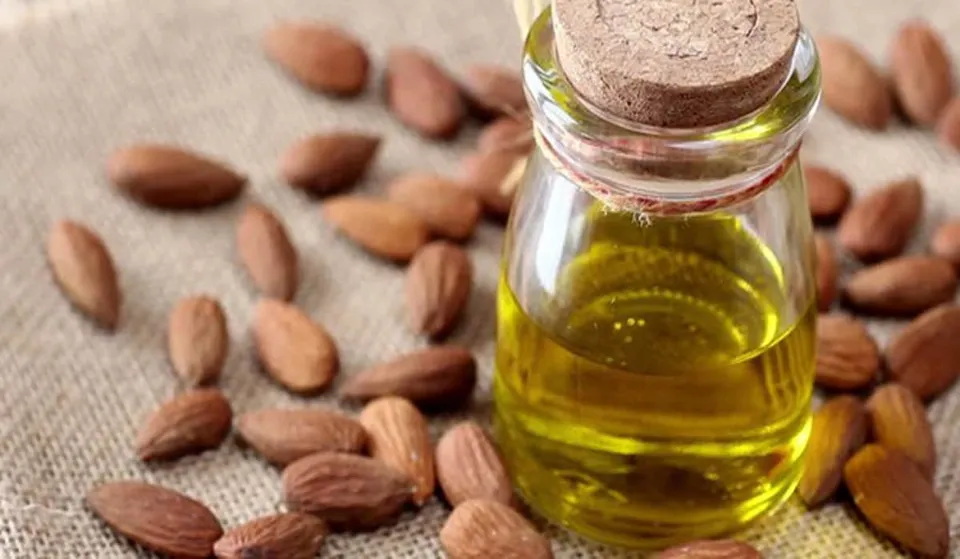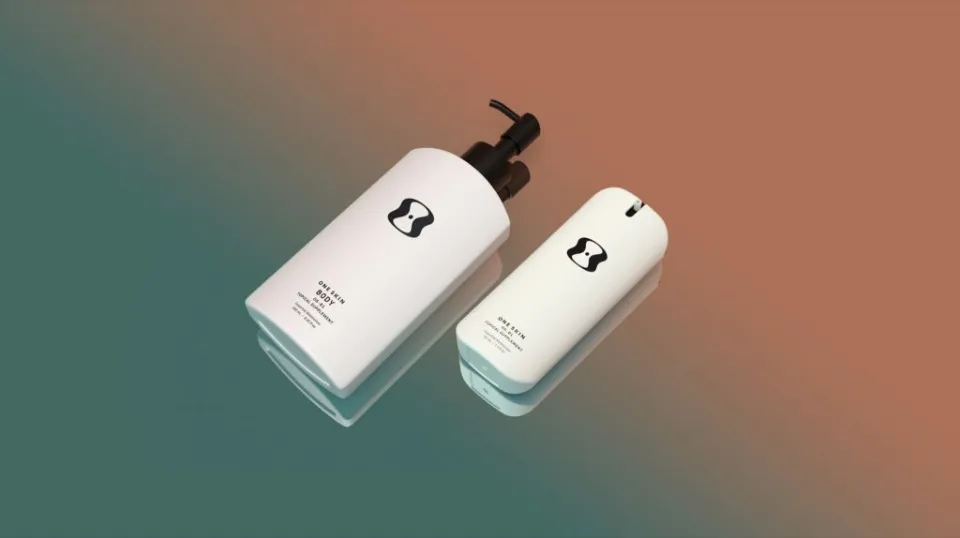If you want to use argan oil for face, then you’ve come to the right place. Keep reading to understand the benefits of argan oil for the skin and how to use it.
Argan oil is a plant oil extracted from the kernels of the fruit pit of the argan tree (aka Argania spinosa) which grows in Morocco.
This moisturizing oil is very gentle, light, and has nourishing properties. To learn more about the benefits of using argan oil on the face and how to incorporate it into your skincare routine, we’ve compiled a full guide below!
What is Argan Oil?
Argan oil is made from the kernels that grow on the argan trees native to The most common form in which it is offered for sale is as pure oil, which has a number of health advantages when applied topically (directly to the skin) or taken orally.
It is offered in supplement capsule form for oral consumption. Additionally, it’s frequently incorporated into a variety of cosmetic goods, including shampoos, soaps, and conditioners.
For centuries, people have used argan oil topically and internally to enhance the health of their skin, hair, and nails. It has several different advantageous qualities and vitamins that work together powerfully to improve skin health.
Is Argan Oil Good for the Face?
Argan oil is considered the holy grail of oils for hair and skin because it falls right in the middle of the oil spectrum. It’s not overly heavy or light. It gets easily absorbed into your skin and is also highly moisturizing. For your face, you hardly need more than one or two drops. The fact that it doesn’t require a carrier oil to be applied is the best part.
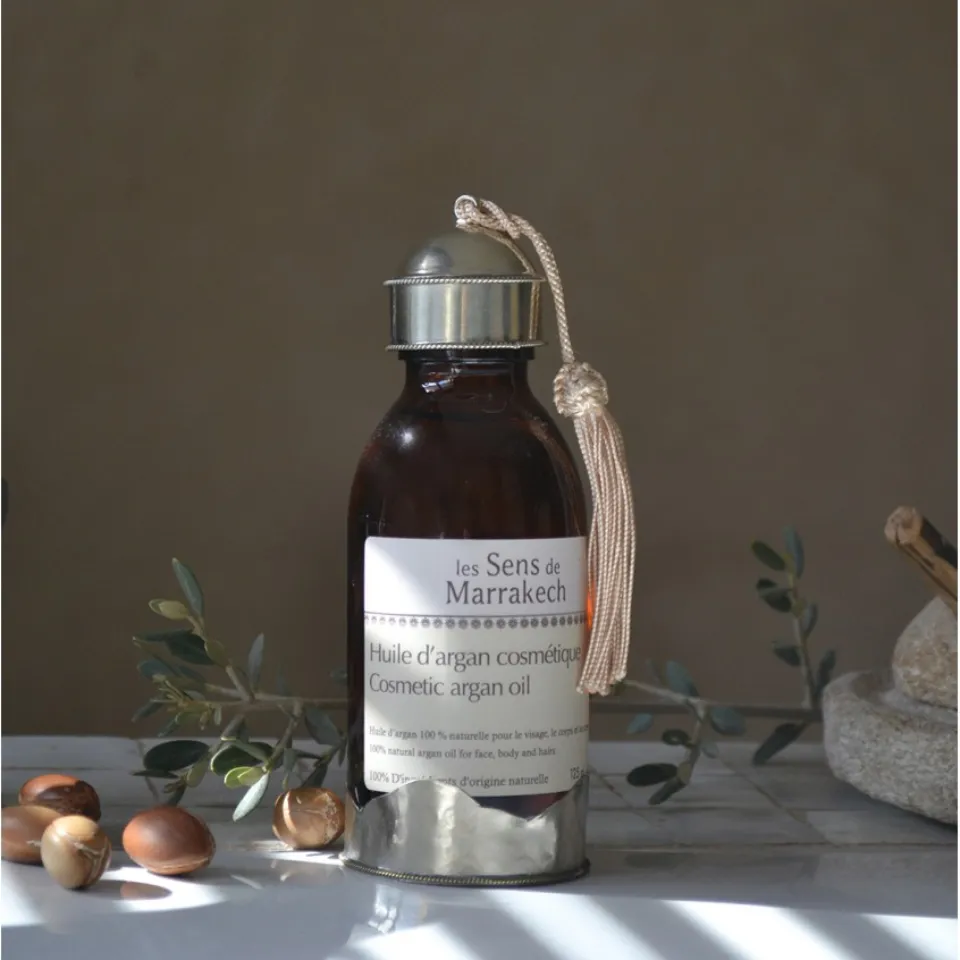
Around 99% of argan oil is made up of triglycerides(oleic and linoleic acids), and the remaining 1% contains vitamin E, carotenoids, sterols, and polyphenols. These are renowned for being fantastic for skin.
Your skin is strengthened by argan oil, which also lessens inflammation, hydrates dry patches, and strengthens your skin as a whole. Let’s look at some benefits of using argan oil for the skin.
Related Post:
Benefits of Argan Oil for Skin
You can use argan oil on your skin for the reasons listed below.
1. Protects from Sun Damage
Moroccan women have long used argan oil to protect their skin from sun damage, a practice was supported by a 2013 studyTrusted Source.
According to this study, argan oil’s antioxidant properties helped shield the skin from sun-induced free radical oxidative damage. As a result, this avoided burns and hyperpigmentation. Long-term, this may even aid in the prevention of skin cancer, including melanoma, from developing.
You can take argan oil supplements orally or apply the oil topically to your skin for these benefits.
2. Moisturizes Skin
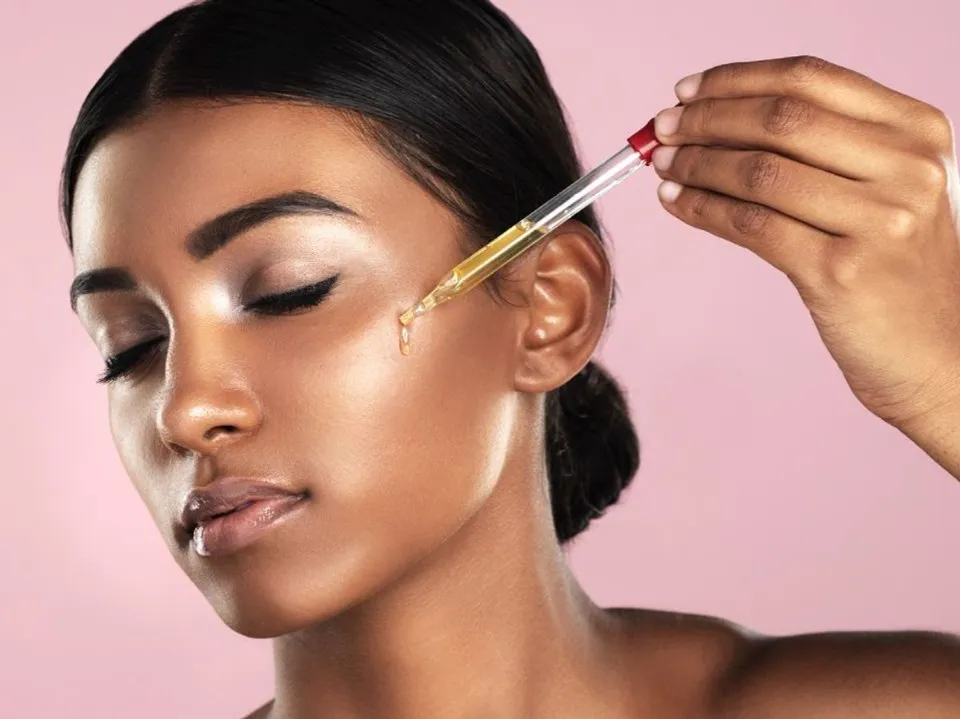
Argan oil is perhaps most commonly used as a moisturizer. Because of this, it can frequently be found in lotions, soaps, and hair conditioners. For a moisturizing effect, it can be applied topically or taken orally with daily supplements. This is largely thanks to its abundance of vitamin E, which is a fat-soluble antioxidant that can help improve water retention in the skin.
3. Heals Skin Infections
The treatment of skin infections is one of the traditional uses for argan oil. Both fungicidal and antibacterial effects can be obtained from argan oil. This gives it the ability to aid in the treatment and prevention of bacterial as well as fungal skin infections.
At least twice daily, topically apply argan oil to the affected area.
4. Improves Wound Healing
Antioxidants are clearly a powerful force. The strong combination of antioxidants and vitamin E found in argan oil can be used to help wounds and cuts heal faster. You can take argan oil supplements regularly to experience this benefit throughout your body.
5. Treats a Number of Skin Conditions
Argan oil contains a large number of healing properties, including antioxidant and anti-inflammatory properties. Both aid in reducing symptoms for a variety of inflammatory skin conditions, including psoriasis and rosacea.
For best results, apply pure argan oil directly to patches of skin affected by psoriasis. Oral supplements might be the most effective way to treat rosacea.
6. Treats Acne
Excess sebum produced by hormones, which contributes to hormonal acne, is frequently the cause. Argan oil has anti-sebum properties that can effectively control the amount of sebum on the skin. This can encourage a clearer, calmer complexion and help treat a variety of acne types.
At least twice daily, apply argan oil directly to your skin, or use face creams that contain it. After four weeks, you ought to begin to see results.
7. Soothes Atopic Dermatitis
Atopic dermatitis is a common skin condition with symptoms like itchy, red skin. Argan oil can be applied topically to the affected area to treat symptoms, according to research. Vitamin E and the natural inflammatory properties found in argan oil can both lead to this soothing effect.
One study was conducted treating dermatitis patients with placebo or oral vitamin Argan oil is high in vitamin E. Researchers discovered that symptoms significantly diminished in participants who received vitamin E.
8. Has Anti-aging Effects
Argan oil has long been used as an anti-aging treatment. Though it was only ever supported by anecdotal evidence, a recent study with postmenopausal participants was able to back up this claim. Researchers discovered that using oral and topical argan oil together significantly improved skin elasticity. This provided an effective anti-aging treatment.
These advantages can be obtained by applying argan oil directly to the skin, regularly ingesting supplements, or doing both.
9. Reduces Skin’s Oiliness
Naturally, some of us have oilier skin than others. For those who do, getting rid of the potential oily sheen is often a top priority. Argan oil can help lower total sebum and lessen skin oiliness because it has the ability to reduce sebum.
One study found that a twice-daily application of cream that contained argan oil reduced significant sebum activity and oiliness within just four weeks.
10. Prevents and Reduces Stretch Marks
Stretch marks can happen to anyone, but they are more common during pregnancy. One 2016 study found that a water-in-oil cream containing argan oil improved skin elasticity. Stretch marks were avoided and treated thanks to this.
Apply argan oil directly to the affected area at least twice per day. For best results, start doing this as soon as you suspect you may have stretch marks or that they have started to appear.
Side Effects and Risks of Argan Oil
Most people are generally thought to be able to use argan oil without any problems. Minor side effects from its use, however, may occur in a few people.
The skin may become irritated when argan oil is applied topically. This can cause rashes or acne to form. People who are allergic to tree nuts might experience this reaction more frequently. Despite the fact that argan oil is derived from a stone fruit, it may aggravate those who have these allergies. To prevent this, test a small amount of argan oil on a spot of skin that can be easily hidden to ensure that it won’t irritate your skin.
Argan oil may upset the stomach when taken orally and result in nausea, gas, or diarrhea. Additionally, it might result in an appetite loss or bloating, and some people might develop skin reactions like rashes or acne.
The oral supplement containing argan oil may occasionally cause people to experience more serious side effects.
Confusion, difficulty falling asleep, general drowsiness, excessive excitement, depression, and agitation are a few of these. Argan oil should be stopped right away if you experience any of these signs.
How to Use Argan Oil on Face?
Oils are not moisturizers, to dispel a common skincare misconception. Oils are considered “occlusives,” a fancy word that basically means they act like a barrier to keep moisture from evaporating out of your skin (kind of like how foil keeps your food warm).
So it’s best to apply oils on either slightly damp skin—to trap all that water in your pores—or massage it on over your moisturizer to lock in all of the hydrating ingredients.
You won’t end up with an oil slick because argan oil is relatively lightweight and absorbs quickly, leaving behind a soft, glowy sheen.
Applying oils to your face after washing it at night may help if you’re concerned about looking shiny during the day.
Having a hydrating, nourishing, softening, acne-fighting, scar-fading, lightweight miracle in a bottle makes up for the possibility that your pillowcase will have some oil stains (I advise using light-colored linens).
Read More:
How Often Should You Use Argan Oil?
Because it has moisturizing properties for both morning and night, argan oil is a great addition to your daily skincare regimen.
Additionally, regular use of argan oil can actually aid in controlling excess sebum, which reduces the likelihood of breakouts for people with acne and mildly oily skin.
How to Choose the Best Argan Oil?
- Inquire about cold-pressed argan oil. When applied to the skin and hair, it works best.
- Any product with synthetic fragrances, scents, or chemicals should be avoided.
- No preservatives are necessary because argan oil is all-natural. So, seek out something wholly organic and natural.
- Argan oil is expensive because of its extraction method and limited availability of the fruit in only a few parts of the world. Anything that is absurdly affordable should not be trusted.
Takeaway: Argan Oil for Face
Most of us use this potent oil for maintaining our hair health, but you can also use argan oil for face. It has excellent hydrating properties and strong antioxidant advantages.
However, you can schedule a consultation with your doctor if you’ve been using argan oil for a few weeks and haven’t noticed any improvements in the condition you’re trying to treat.
To help you with any conditions you’re dealing with, they might suggest additional forms of treatment, such as prescription drugs.
Read More: Jojoba Oil on Face
FAQs
Is Argan Oil Good for Face Wrinkles?
Argan oil is especially effective in firming skin and improving elasticity, minimizing fine lines and wrinkles, increasing hydration, and offering protection from free radical damage.
Can Argan Oil Clog Pores?
Non-comedogenic and incapable of clogging pores, argan oil. In fact, it’s safe to use on oily or acne-prone skin.
Does Argan Oil Brighten Skin?
Polyphenols and vitamin E are two antioxidants abundant in argan oil that aid in preventing environmental damage. The anti-aging and skin-softening qualities of this vitamin make it a favorite in the skincare industry. Both aid in the removal of free radicals, preserving the youthfulness of the skin.

